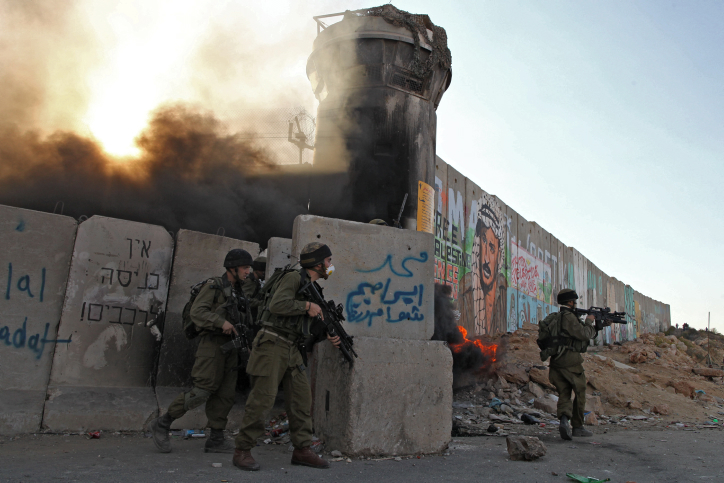The newest version of the nation-state bill, which effectively pulls Israel’s apartheid regime out of the closet, could potentially lead to massive violence against its weakest population.
By Marzuq Al-Halabi

The “nation-state bill,” which was approved by the Ministerial Committee for Legislation on Sunday, is no different from the day-to-day political discourse taking place in Israel these over the last years. By revoking Arabic as an official language of the state, and maintaining that “the right to realize self-determination in the State of Israel is unique to the Jewish people,” the bill enshrines the ideas, desires, ideology, and actions of Israel’s political leaders since the assassination of Prime Minister Yitzhak Rabin.
The proposed bill, in the “refined” version put forth by the prime minister, is in the spirit of the most extreme right-wing bills that have been proposed before the committee or in the hallways of the Knesset. Even more moderate proposals (like the one from MK Benny Begin), which tried to save Israeli democracy “with stains” (according to Professor Benjamin Neuberger), were pulled in by the Right, reflecting right-wing ideology more than a Jewish and democratic Israel.
The law, even if it only anchors a de facto political reality, carries with it more than just a few dangers for this already-weak democracy (one which never dared to enshrine equality, a basic principle in every democracy) — it poses a danger to the future of the entire region between the river and the sea.
One can view this law as one that pulls Israel’s apartheid regime out of the closet, after hiding for so long. But there is also a danger in the public atmosphere that the law could create and encourage. The assumption is that such a bill would pass in the Knesset, leading to additional laws in the coming months that will surely use the nation-state law as their ideological foundation.

One can safely assume that one of these future laws will try to establish Israel’s borders, which will inevitably include an Israel from the Mediterranean Sea to the Jordan River. The law, then, will be applied in all areas under Israeli sovereignty. This legal situation will create an apartheid regime, or “justified crimes” against the Palestinian people, such as population transfer or removal. The Supreme Court, at the point, won’t be able to do a thing about it. This legal situation may also do away with the court’s independence, replacing the current situation in which it can still carry out constitutional review, even if limited, on the the executive and legislative branches of government.
The law also represents a change from the legal framework put forth in Israel’s Declaration of Independence, its Basic Laws, and High Court rulings — especially during the tenure of Justice Aharon Barak, who managed to find some kind of balance between “Jewish” and “democratic.” The new law upends this balance in favor of the Jewish nation, giving a clear advantage to Israeli Jews, while adamantly refusing to recognize the presence of another nation in this land. The significance of doing so is not merely symbolic. The moment the government begins to carry out this law, it will turn into a tool of the regime to justify any sanction or oppressive act — even violent — against its opponents.
This development is frightening in light of the climate in which all this is taking place: the strengthening of the global right as part of the crisis of capitalism and the international community turning its back on the agreements, norms, and understandings that developed in the wake of the Second World War.
This result could potentially lead — like in many other places — to the use of unrestrained violence here. Support for nationalistic fervor and right-wing ideologies could spell disaster in our region. The Israeli feeling of supremacy accompanied by existential dread — based on recent Jewish history — and combined with a messianic worldview, could turn such a volatile situation into a dangerous one for Palestinians everywhere under Israeli sovereignty — and even beyond.
The danger, then, is not changing the legal status of the Arabic language, and not in granting privileges to the Jewish majority, but rather in the way it lends itself to and legitimizes outright apartheid. The nation-state bill could very well make this scenario come to life. No more “occupation,” no more “disputed territories” — but rather full Israeli sovereignty over all of Israel-Palestine. Come hell or high water.
Marzuq Al-Halabi is a jurist, journalist, author. He writes regularly for Al-Hayat. This post was originally published in Hebrew on Local Call.
